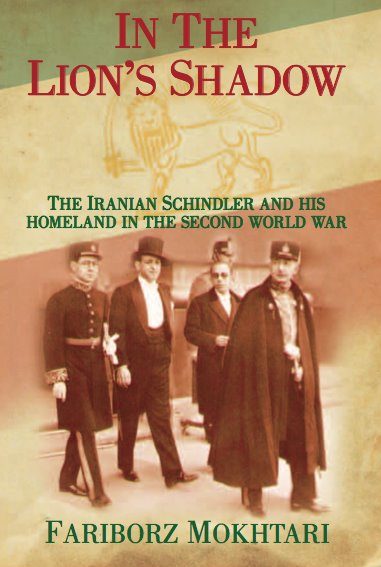



Synopsis
Abdol-Hossein Sardari was born in Tehran in 1914 into a wealthy aristocratic family. His mother neglected him and his alcoholic father who was of little help, died when his children were still very young. Often ostracized by his mother, he was sent off to an English boarding school at the age of eight where he received a traditional English education and in time became a trusted protégé of Iran's envoy in Switzerland. He enrolled at the University of Geneva, received a doctorate in Law, was admitted into the Iranian Foreign Service and proved himself masterful at getting things done. By the time WWII broke out, Sardari had become a competent diplomat with a natural talent for mastering languages. He is said to have spoken English with the flair of an English gentleman, German with the refinement of a Swiss litigator, and French with the accent of a cultured Parisian. Although often away from Iran since early childhood, his associates attest to his fluency in Persian, familiarity with Persian poetry and his remarkable Persian hand writing.
Assigned to the consular section of the Iranian Legation in Paris, he found himself unexpectedly charged with the responsibility of protecting Iranian interests in occupied France. Amiable and gregarious, Sardari was a member of the Qajar Royal Family that had ruled Iran until 1925. He was a charming bachelor with an uncommon gift for socializing in general and entertaining his guests in particular.
Sardari had the key to the legation’s safe where some 500-1000 blank passports were commonly stored. After having secured the safety of fellow Iranians, he issued documents for others, generally recommended by his trusted Iranian Jewish friends. German archival documents suggest that Sardari had managed to exempt 2,400 Jews from Nazi racial laws. That number is considerably greater than the entire Iranian Jewish population residing in France at the time.
He had numerous female companions, but one clearly stood out. The classically trained Chinese opera singer whom he affectionately called Tchin-Tchin was the only woman with whom he wished to share his life. Tchin-Tchin was beautiful, artistic and sociable. But she was also alone and in the midst of World War II separated from her home and family. Ironically, the one person to whom he was romantically committed suddenly disappeared from his life without a trace.
Sardari avoided discussing his experiences of the war years. He might have wished to forget the horrors of the period or perhaps was too modest. He had always had friends of various nationalities, French, German, Swiss, English, American and Iranian. He had consistently rejected the urge to simplify relations into “us versus them.” He understood deeply life’s many predicaments. He rejected ideologies so fashionable in the 30s, 40s, and 50s that sought to erase all ambiguity in human loyalties.
Having struggled to blunt the sharp edges of intolerance and rejection he had faced, he would not be intolerant himself. Although he shunned accolades, he was prosecuted after the war for having allegedly over-stepped his authority. Worse yet, the revolution of 1978 robbed him of his wealth and even his earned pension. He died alone, broken, and destitute. His life ended far away from the woman he had loved, the country he had served, and the friends he had cherished.
In the Lion's Shadow demonstrates the lengths to which many, including non-Jewish Iranians and even some German and Vichy officials went to minimize the impact of the anti-Jewish laws to save thousands. Using oral accounts from the families of the survivors, captured German documents stored at the United States National Archives, and other written accounts, the book examines many facets of this complex historical period.